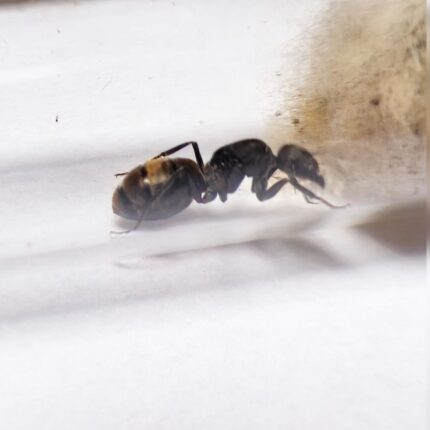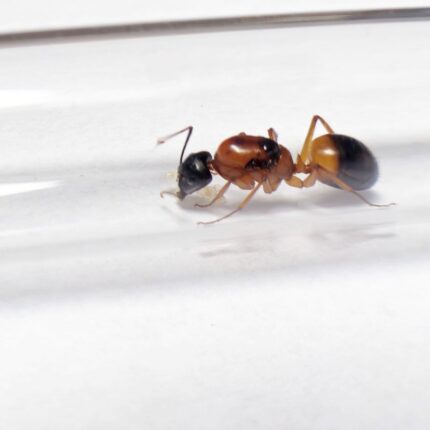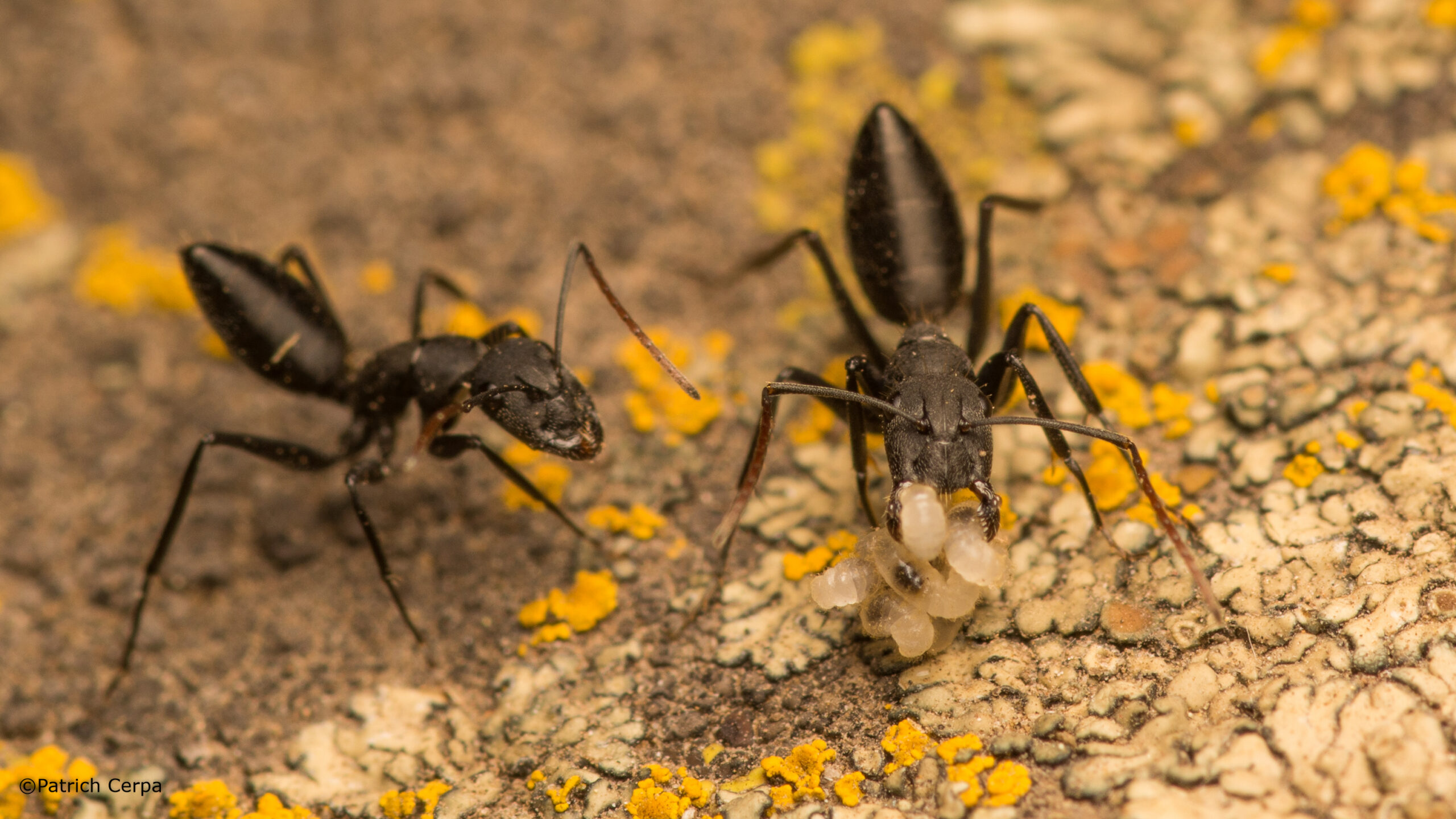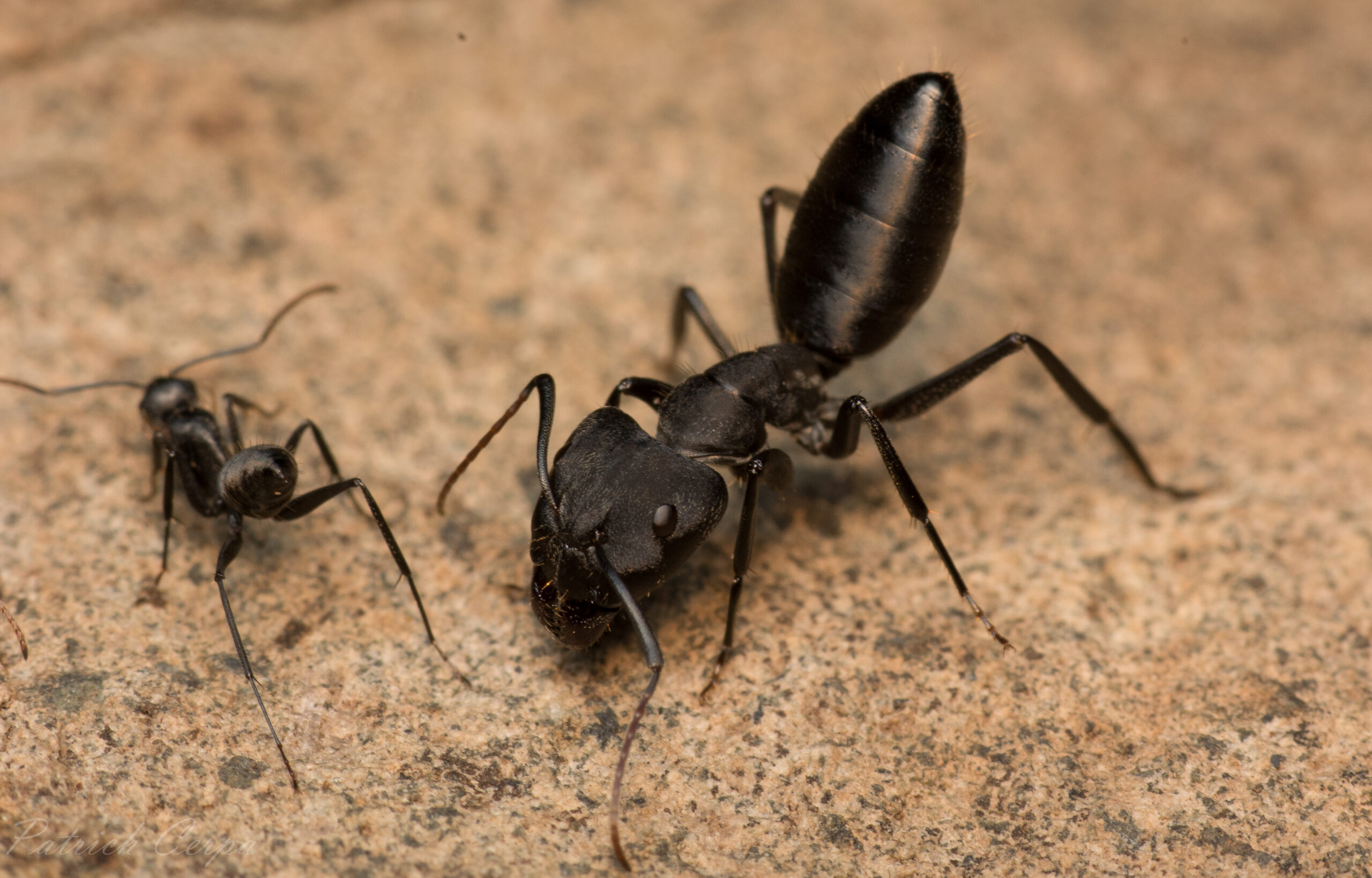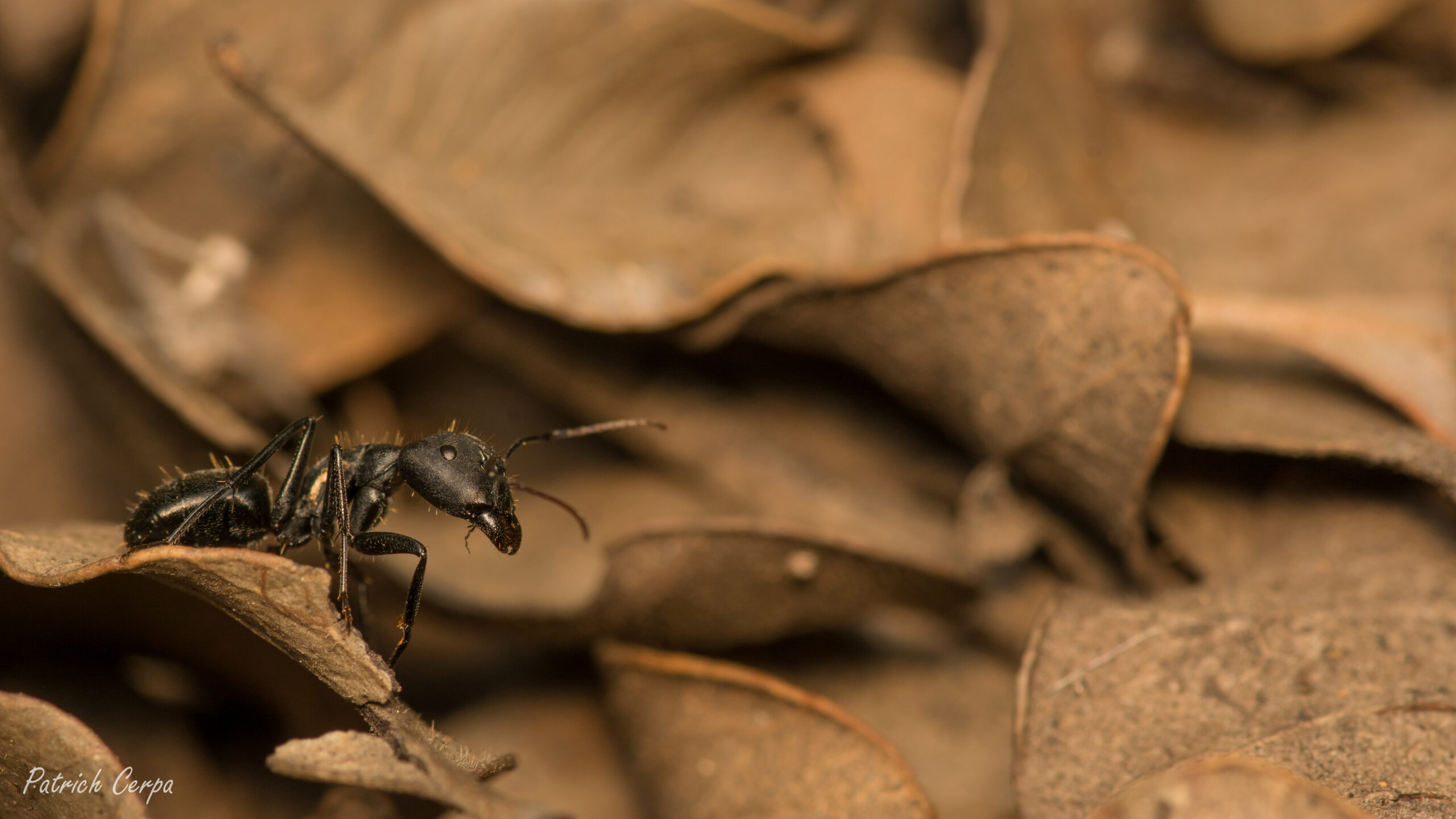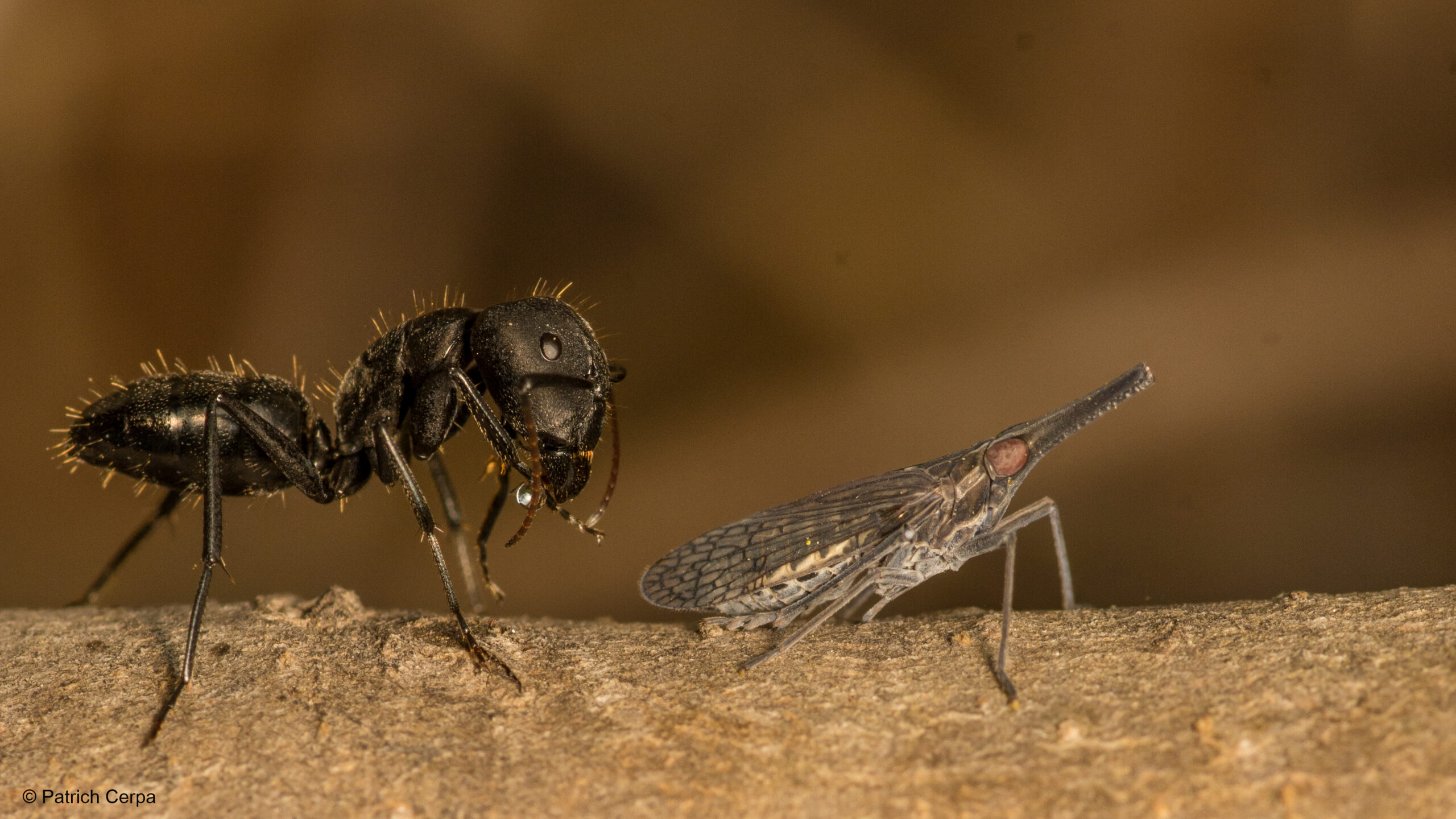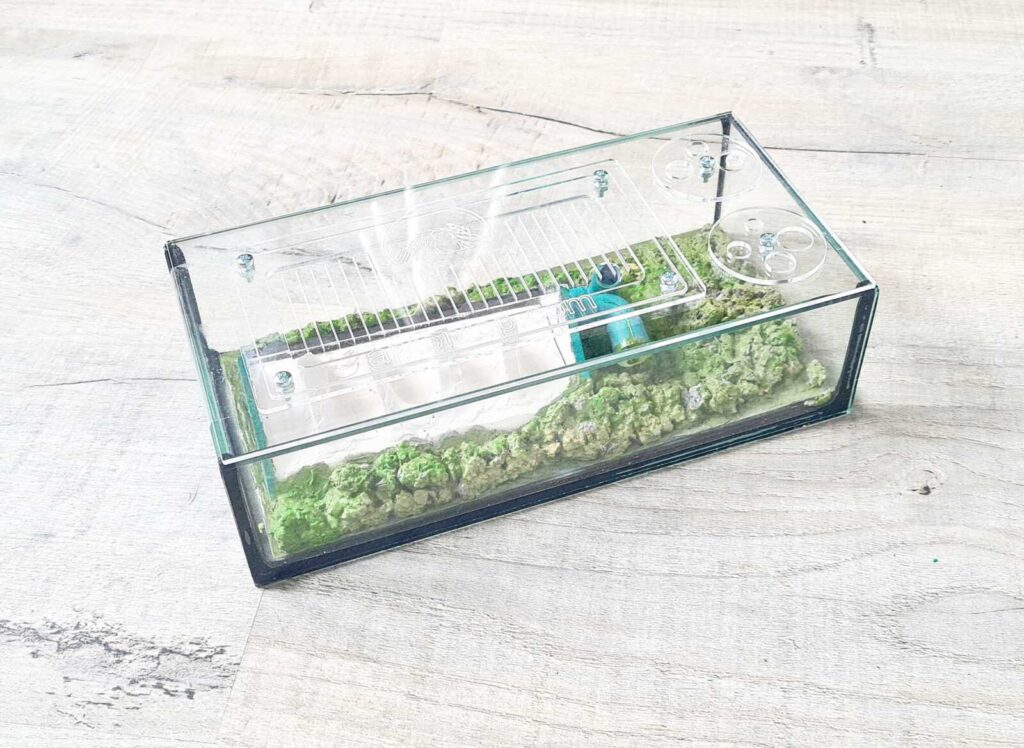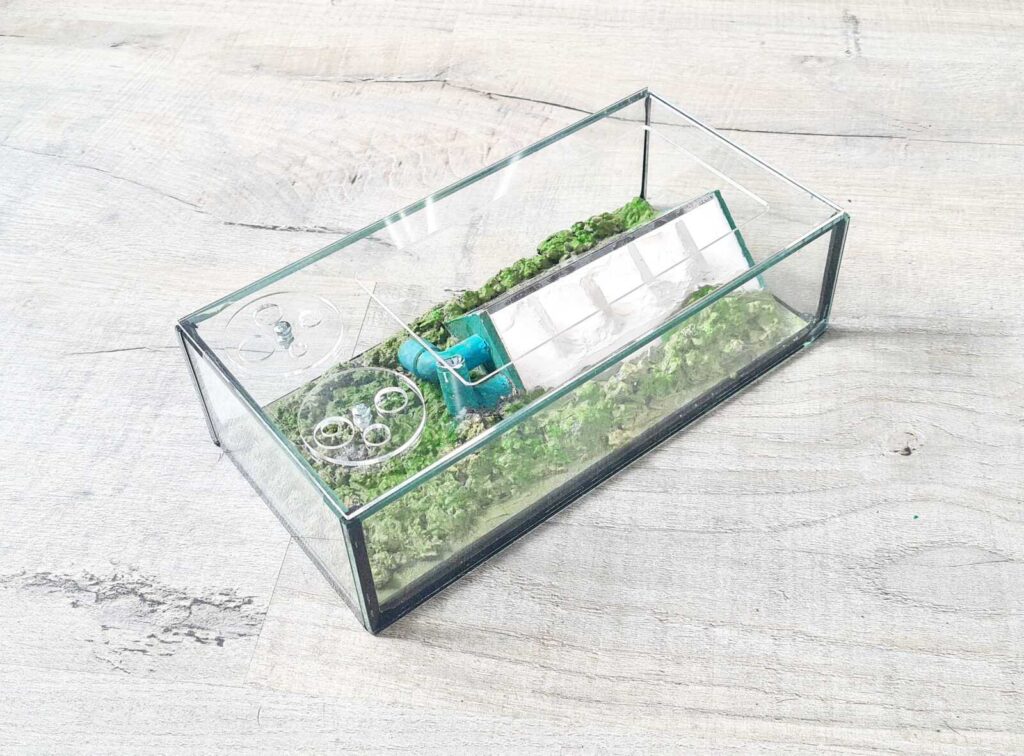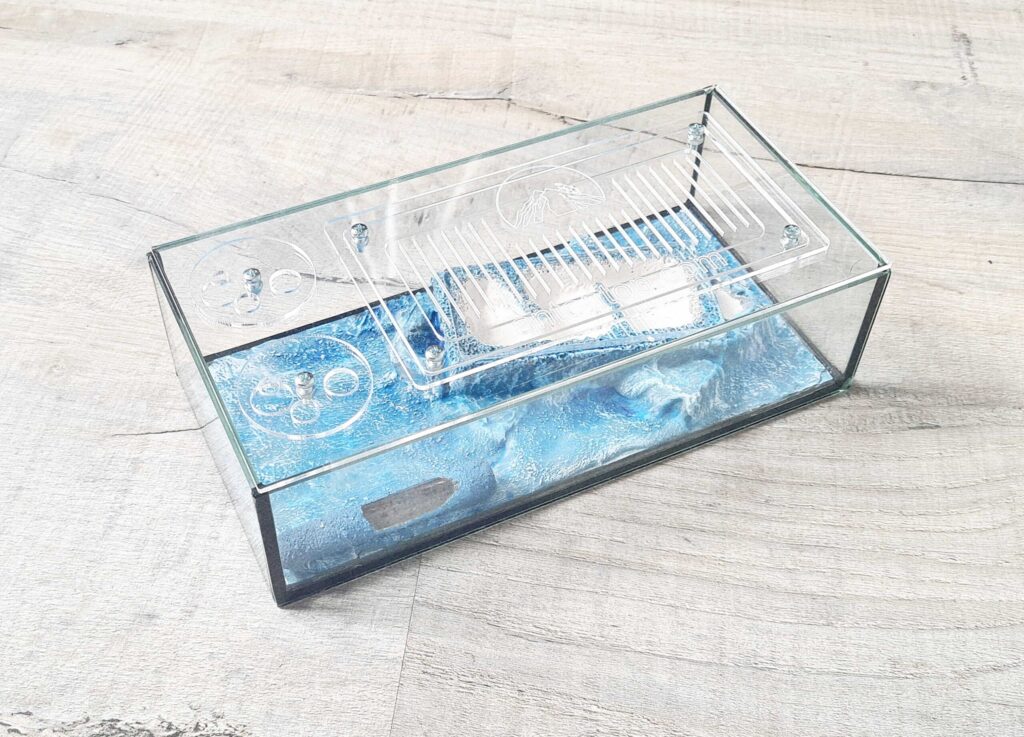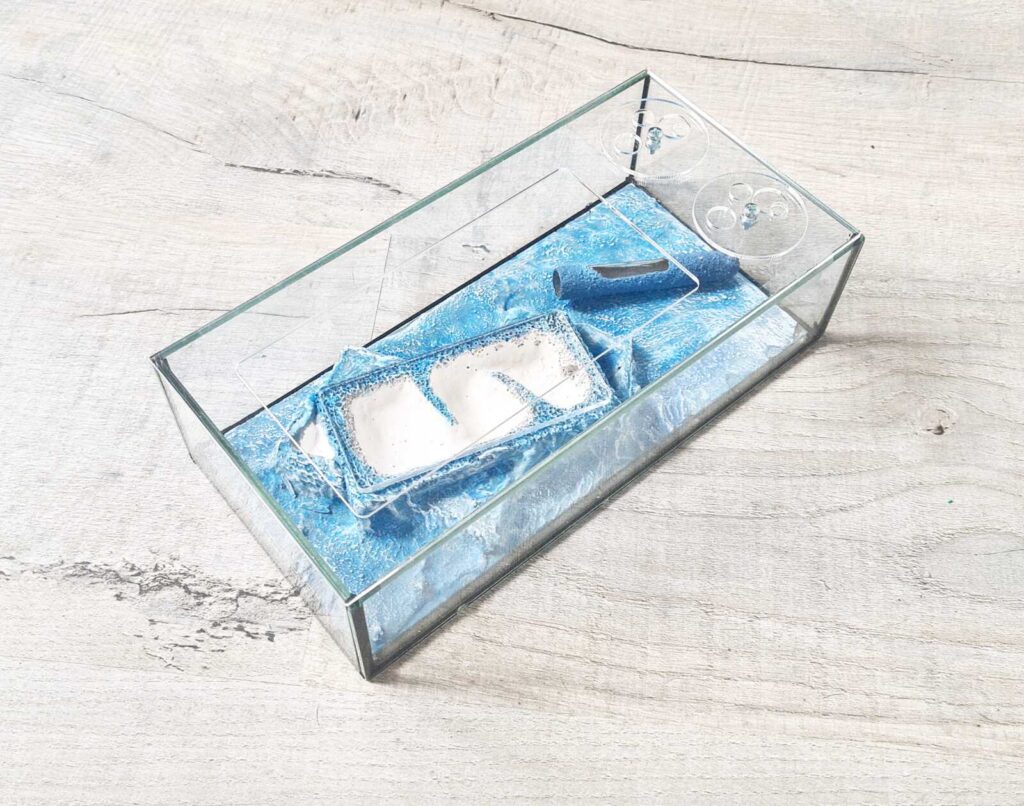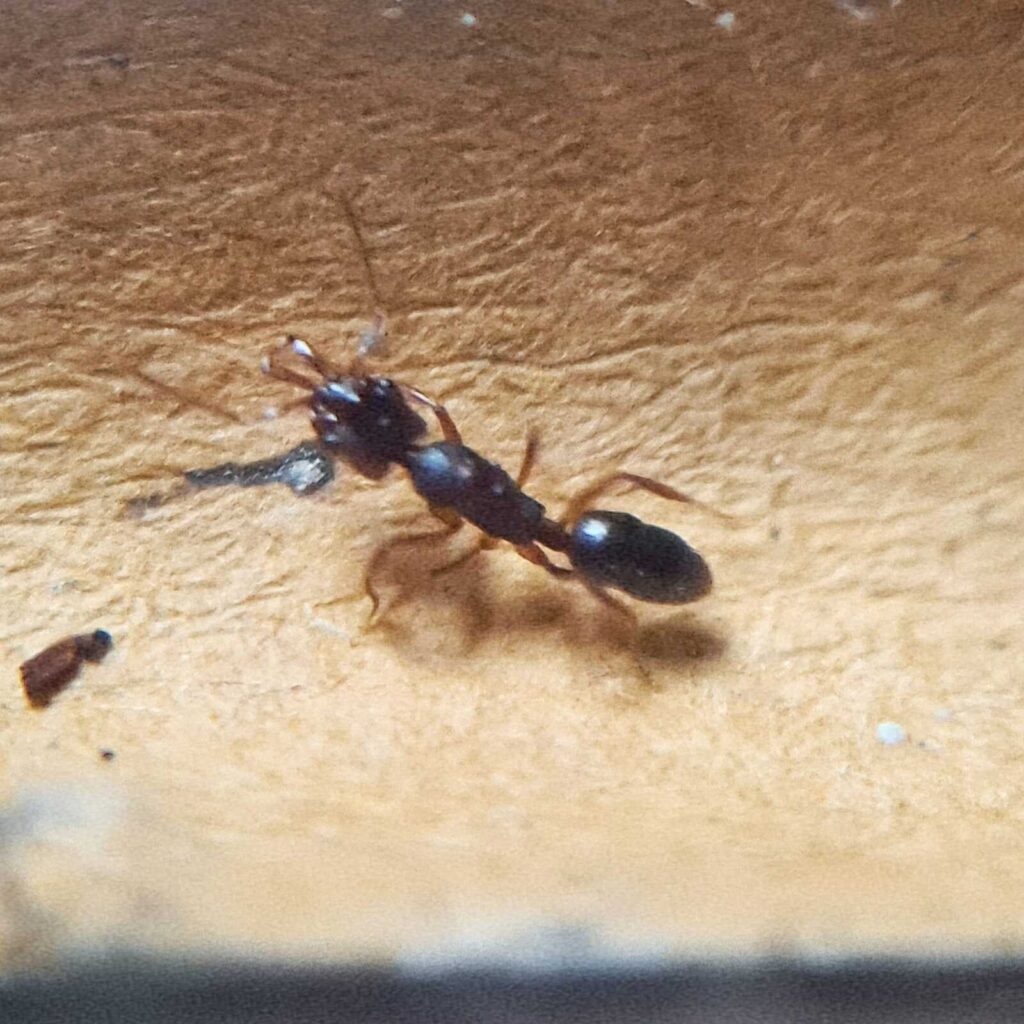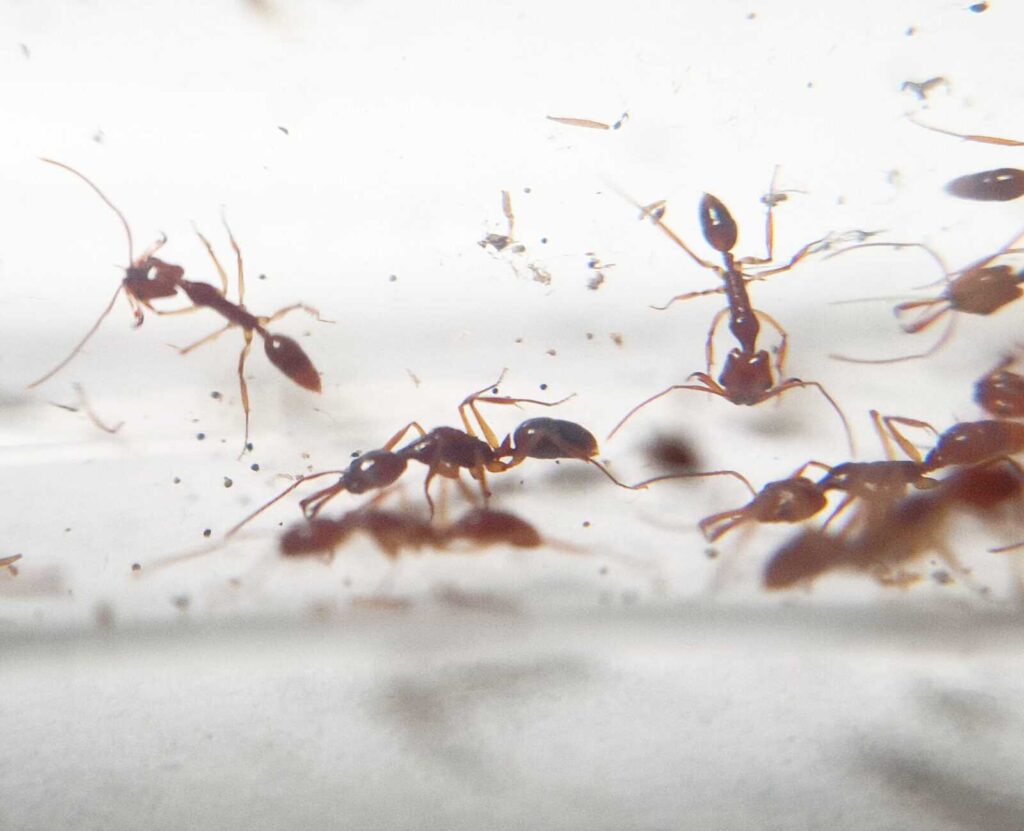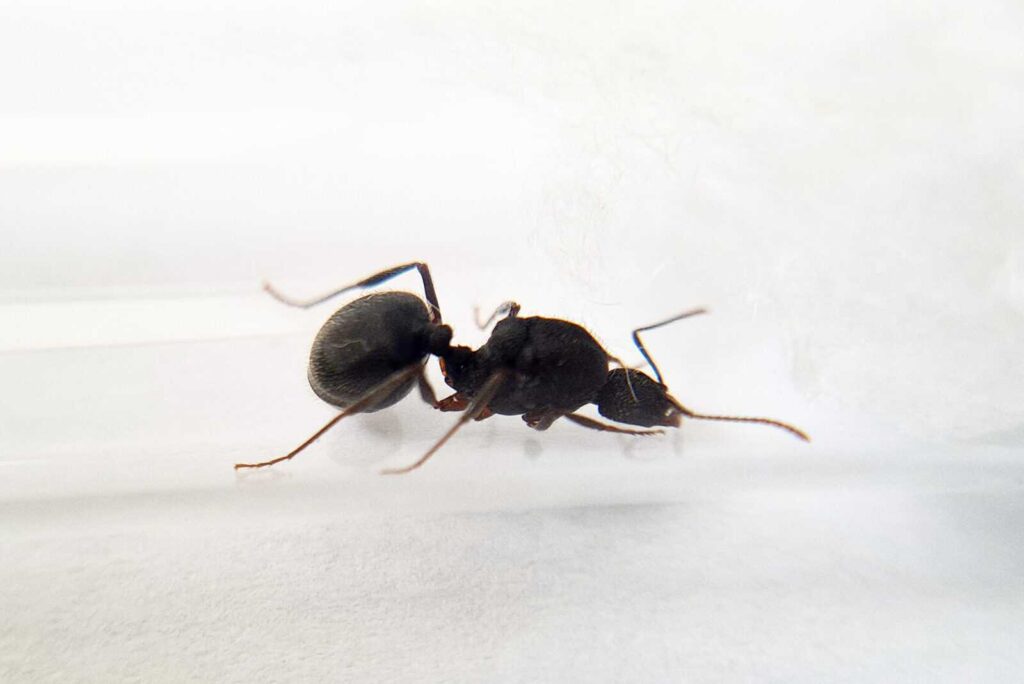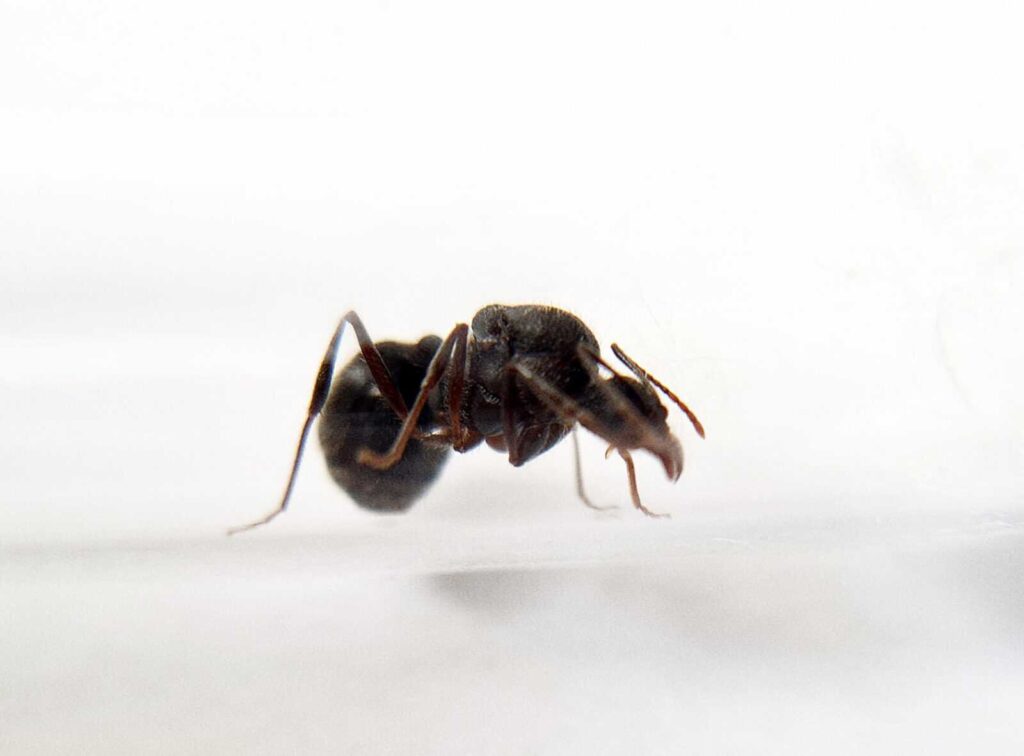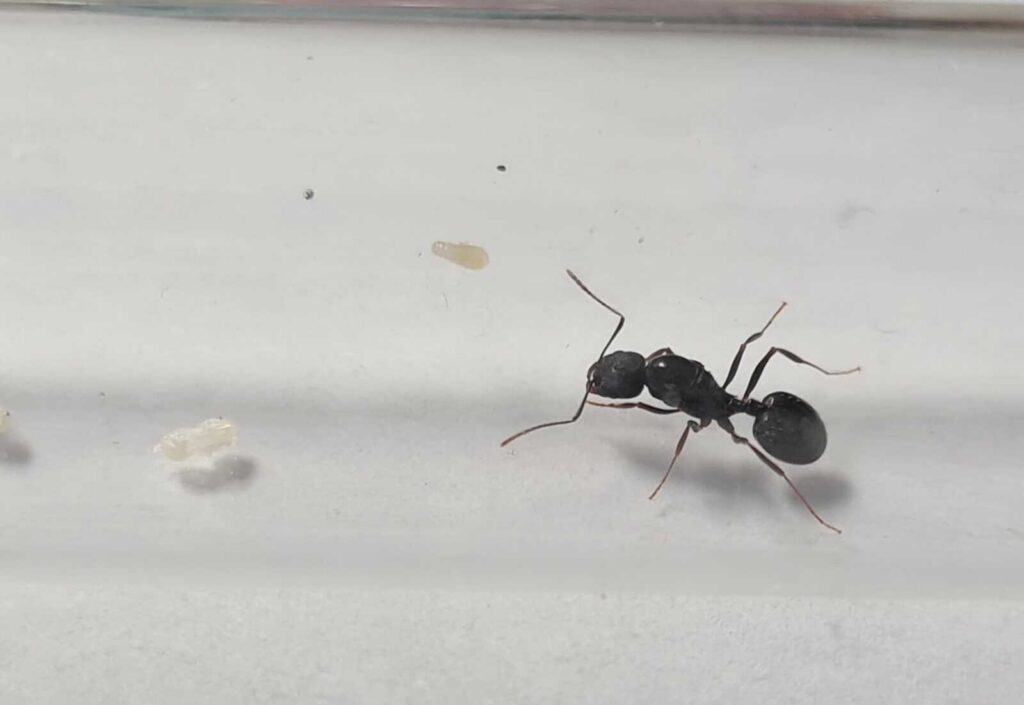Camponotus morosus
140,31 € – 257,26 €
Worldwide shipping
Free delivery over 500 PLN
The highest quality of goods
Live delivery guarantee
24/7 Personal Support
Fair Prices
Description
Camponotus morosus is a monogynous ant species with colonies containing up to 10,000–15,000 workers. They develop at a moderate speed. Queens measure approximately 15–17 mm in length, while workers range from 6 to 9 mm. Their body exhibits a typical Camponotus contrast: the head and thorax are reddish-brown, while the gaster is dark brown to black.
Additional information
| Behavior | |
|---|---|
| Difficulty in breeding | |
| Origin | |
| The size of ants | |
| Wintering |
Camponotus morosus
Colony Type: Monogynous
Colony Size: Up to 3,000–5,000 workers (in mature colonies)
Development Speed: Medium (faster with higher temps and consistent protein)
Size:
• Queen: 12–14 mm
• Workers: 5–9 mm (minor and major workers present)
Coloration:
Typically dark brown to black with a slightly reddish tint on the thorax in some individuals. Matte, velvety body texture with fine body hairs gives them a muted, elegant appearance.
Diet:
• Protein: Small insects (e.g., crickets, flies, roaches), cooked egg white, unsalted meats
• Sugar sources: Sugar water, honey-water mix (4:1 ratio), maple syrup
• Fruits: Apple, banana, melon (small amounts)
• Protein or nectar jellies (optional)
Tip: A consistent mix of sugars and protein fuels faster brood development.
Environmental Conditions
• Humidity:
Arena: 40–60%
Nest: 50–70%
• Temperature:
Arena: 22–30 °C
Nest: 23–27 °C
Moderate heating encourages growth, but this species does not require extreme warmth. Avoid nest humidity above 75% to prevent mold.
Unique Traits of Camponotus morosus
C. morosus is a calm and adaptable species, known for its docile behavior, making it excellent for beginners and educational setups. Colonies grow steadily and exhibit a clear worker caste division, with majors and minors taking on different roles. They show low aggression and rarely attempt escapes, which makes them ideal for display formicariums.
Nesting Recommendations
Ideal nest materials for Camponotus morosus:
• Acrylic with a moisture gradient
• Plaster nests
• YTONG (aerated concrete)
• Naturalistic setups with wood or sand-clay mix (for advanced keepers)
Nests should allow room for large-bodied majors and be easy to clean.
Summary
Camponotus morosus is a mild-tempered, beautiful carpenter ant species with steady growth and minimal care demands. With proper temperature, a clean nest, and regular feeding, they form healthy, long-lived colonies. Their calm nature and defined caste roles make them ideal for hobbyists who enjoy peaceful, observable ant societies.


